From 4 – 9 March events happened across the whole borough, from Littleborough to Middleton. The focus was overwhelmingly on home-grown ideas, co-created with the people of Rochdale. The festival was commissioned in partnership with the Culture Co-op and Rochdale borough’s Creative People and Places programme, funded by Arts Council England.
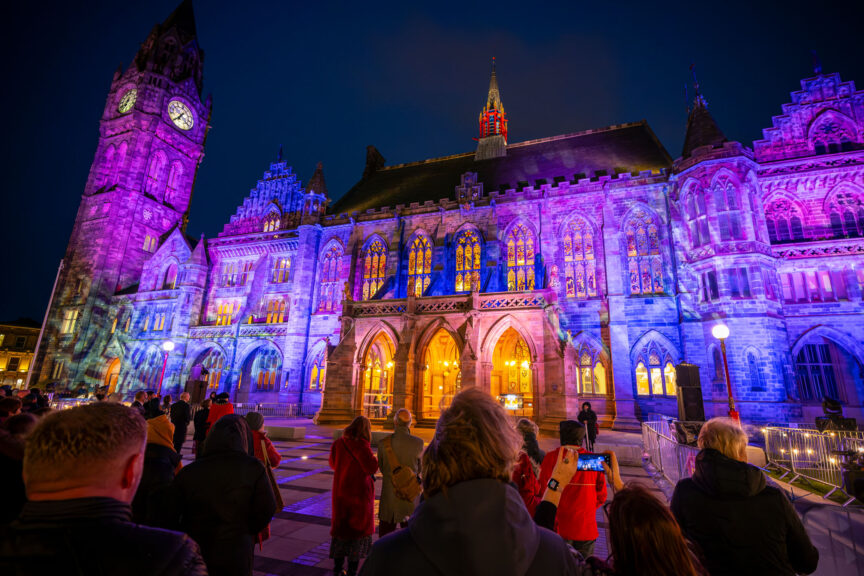
The opening event was a lightshow outside the town hall, accompanied by audio performances highlighting the stories of Rochdale’s heritage that are sometimes overlooked, and the creative potential of its future.
For another strand of the festival, inspired by the Thomas Edison quote “I have not failed. I’ve just found 10,000 ways that won’t work”, the festival team worked with primary schools in the borough to generate 10,000 ideas. With a focus on creativity rather than feasibility, the project sought to create the confidence in the children to imagine something different, to show them their power in defining what might be possible for their community.
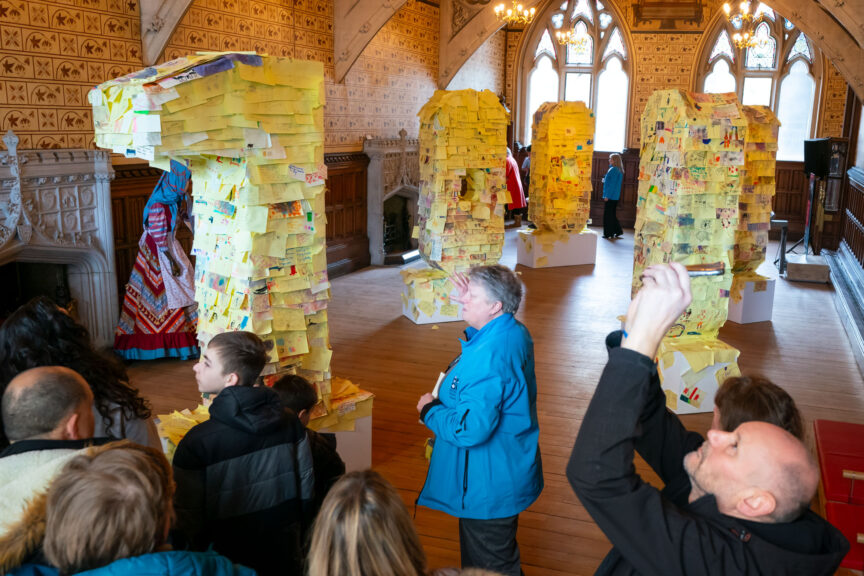
From rollercoasters and ziplines, to a ‘hooverboard’ (exactly what it sounds like), over 1,850 students at schools across Rochdale were empowered to go wild with ideas about what would make them laugh, what would excite them, as well as their ideals for things like transport. These ideas were then displayed as a sculpture for the public.
Other art installations across the borough also took place, from ‘The Living Dress’ to the ‘Take Ten’ performance piece where Fluid Motion Theatre invited people to sit in swing chairs and relax for a moment, turning mental wellbeing into a conscious act. There was also a ‘Rock Dale Wall of Sound’, highlighting Rochdale’s contributions to music production over the decades.
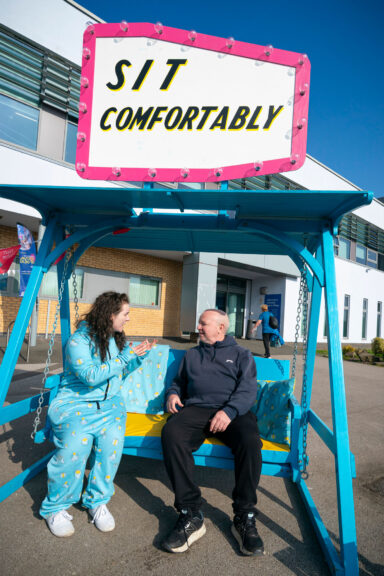

The public was also given opportunities to become the creators. The Nigeria Community Organisation hosted a workshop on creating clothes inspired by styles from Africa and beyond. They then displayed the pieces in a fashion show at the Town Hall.
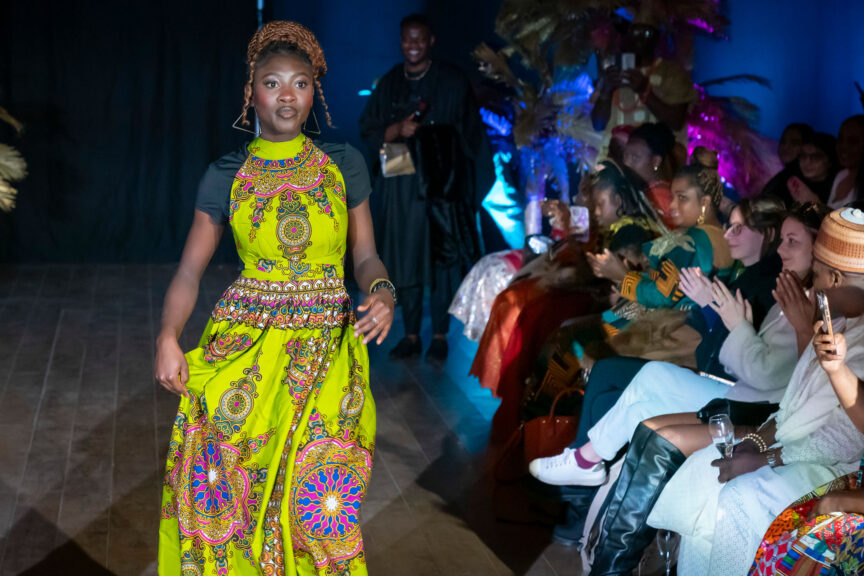
A big hit was the Maker Games, a cross between Scrapheap Challenge and Taskmaster, where teams battled to design and build a range of incredible objects. At Rochdale Central Library visitors were given the opportunity to draw their own comic, guided by Emma Reynolds, an award-winning author-illustrator, to harness the power of art to create a better collective future.

Digital technology as a multiplier of creativity was also explored during the festival, at Middleton Arena’s ‘Power Up’ sessions on the building blocks of Esports, and Theatre Electric’s VR escape room at Number One Riverside.
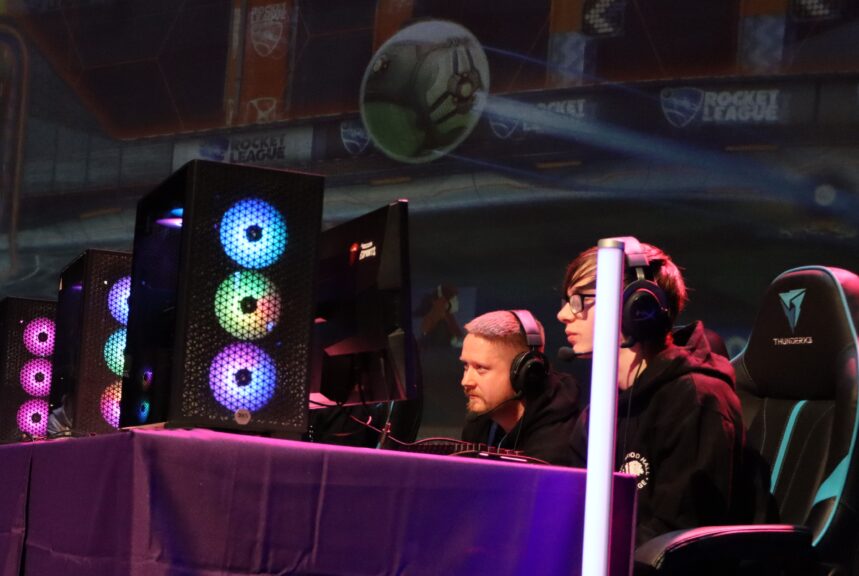

More traditional performances were held as well, in format if not content. Echoing the original opening of Rochdale Town Hall in 1871, the Black Dyke Band gave two concerts, celebrating a musical tradition over 100 years old. At the other end of history, Move Manchester performed their dance piece ‘Zugzwang’ – setting Rochdale Town Hall up as a venue capable of hosting all genres of creative expression that come from the community.

Rochdale’s outdoor spaces were also in focus, providing the scenery for a walk led by Muslim Hikers, highlighting the importance of creating spaces explicitly welcoming to marginalised communities, and the need for networks of inclusion across all communities.
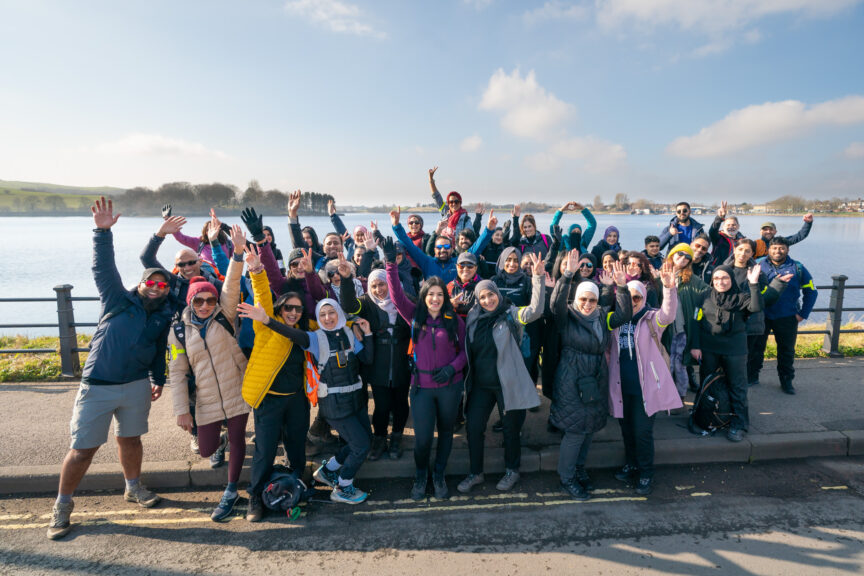
The festival also hosted a series of salon talks that inspired people to think about the future. The ‘Future Green Spaces’ session focused on embracing nature for a green future, inspiring people to think about the climate emergency as a solvable issue.
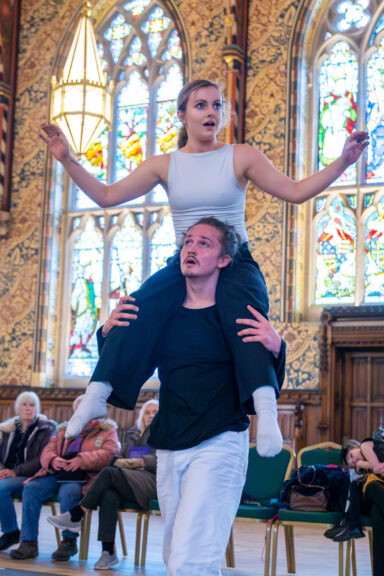
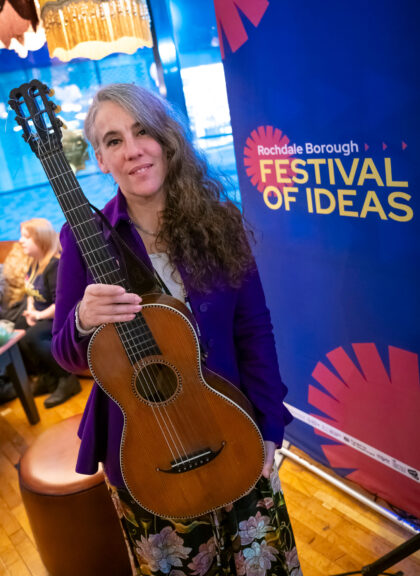
‘A Young People’s Utopia’ was an inspiring debate asking young people what they wanted to see in the Rochdale of 2060, co-organised with the National Theatre’s Speak Up programme. They focused significantly on the experience of education, and a desire to be valued for more than their test scores.
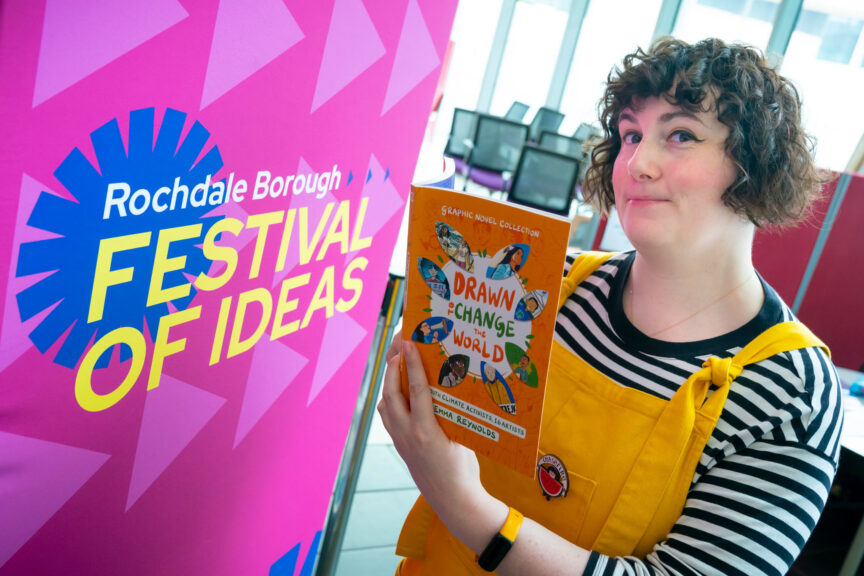
The event closed with a ‘Speakers’ Corner’ session, a smaller gathering where community leaders were invited to share their visions for the future of Rochdale. These visions included space to allow the homeless to explore creativity, inclusive sports clubs, and even a science museum.
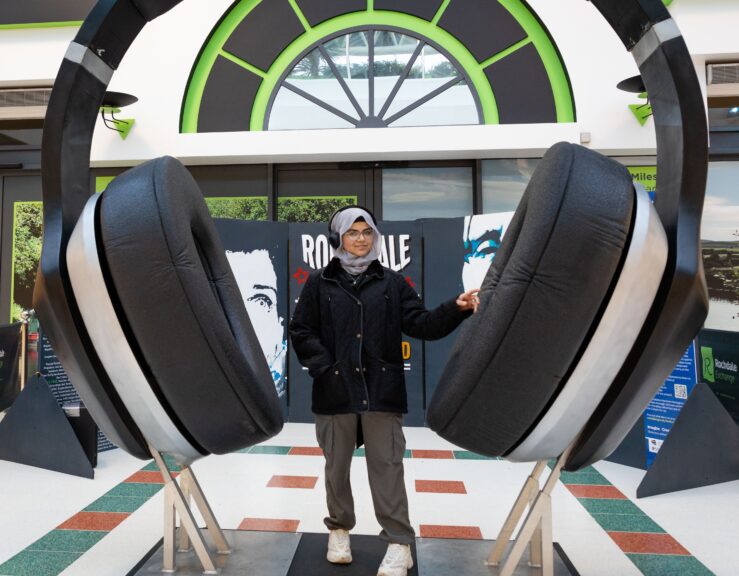
Speaking to Madeleine O’Reilly, the festival’s artistic associate, highlighted the importance placed on ensuring that the festival mirrored the diversity present in the people of Rochdale.
Madeleine praised the festival volunteers, who made the events possible, and encouraged people to check out opportunities to volunteer in Rochdale in the future.
She also emphasised that this was just the beginning of where Rochdale could take its ideas:
“Just having the opportunity to share and express your ideas, it’s about building confidence and about building empowerment and building community because I think the key thing is that if people feel valued for their ideas and their contribution and they build their confidence, you can then get towards advocacy. So this is sort of the first step, which is about bringing those communities together, [them] being seen…having that power to imagine and to be given permission to imagine.
“I think it’s like it’s step one of looking at how a creative event can empower communities, can listen to communities, and then look at how it can develop and grow going forwards.”
Sign up to The Meteor mailing list – click here
The Meteor is a media co-operative on a mission to democratise the media in Manchester. To find out more – click here
All images: Rochdale Borough Council
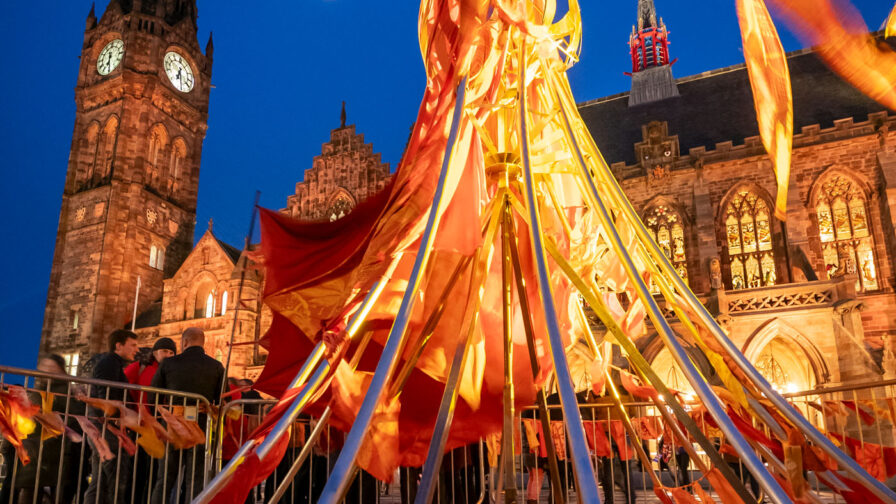

Leave a Reply